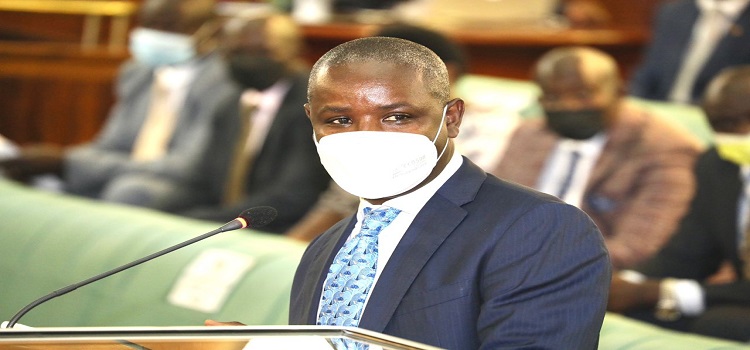Presentation of Sports Bill deferred

The tabling of the National Sports Bill for First Reading is deferred with government arguing that there is a need for further consultations on the financial implications.
Budiope East Member of Parliament, Hon. Moses Magogo was scheduled to table the Bill during Plenary on 09 March 2022, but the Government Chief Whip, Hon Thomas Tayebwa said that the Bill has several connotations of financial implications which require co-sponsorship.
“We have made wide consultations and we request the House to allow us work with the Member. We need more time to present a comprehensive Bill,” Tayebwa said.
He added that government is finalising the process of introducing the sports policy which would form principles of the Bill.
“We are meeting with the Ministry of Education tomorrow so that we can be able to work out a framework to expedite processing of the Bill,” Tayebwa said.
MPs however, expressed fears over the move to halt the reading of the Bill, saying that it is a way of frustrating a Private Members’ Bill.
Ndorwa East MP, Hon. Wilfred Niwagaba said that the Hon. Magogo should have been allowed to table the Bill and then government engages him.
“The Government Chief Whip is speaking in anticipation. As of now, stopping a member from reading the Bill for the first time is frustrating and against our law,” he said.
Hon. Godfrey Macho (Indep., Busia Municipality) said that whenever a member is ready to present a Bill, Government ‘plays delay tactics’ and frustrates the Bill.
“Since it is on the Order Paper, I would agree that the Bill is read for the first time,” said Macho.
Hon. Nandala Mafabi (FDC, Budadiri County West) said that there was no reason as to why the Bill should not be read for the first time since the member carried out extensive consultations.
“We cannot allow government to frustrate a member who has invested all his time and energy. The minister can make his own Bill but let the member bring his for the first reading,” he said.
Hon. Michael Mawanda (NRM, Igara County East) recounted his experience where he said government frustrated his efforts to present a Bill.
“Government was given three months within which to issue a certificate of financial implication. The three months have expired and just yesterday, they informed me that they cannot issue a certificate for a Bill which I intend to pay for,” said Mawanda.
Hon. Asuman Basalirwa (JEEMA, Bugiri Municipality) raised a matter of procedure, saying that according to Rule 128 of the Rules of Procedure, once the Bill is on the order paper, the Speaker has only one choice, which is to allow the member to present the Bill.
“Rule 121 of the Rules of Procedure empowers government to assist a Private Member, government is at liberty to cooperate with the member. What government cannot do is to arrest the Bill,” Basalirwa said.
He added, ‘Would we be proceeding well if the Government Chief Whip arrests the Bill and yet the Rules of Procedure are very clear’.
Hon. Sarah Opendi (NRM, Tororo District) added that since it has taken government long to introduce a Sports Bill, the member should be allowed to proceed with reading the Bill.
“The Rules are extremely clear. The member sought leave and it was granted. The Bill should be read and we move on. Government will find us on the way,” Opendi said.
Deputy Speaker, Anita Among guided that since government explained that they are not prepared to give a certificate of financial implication, they will be granted two weeks to harmonise with the mover of the Bill.
“We put it on the Order Paper based on the Public Finance Management Act (76),” Among said.
The object of the Bill is to repeal the National Council of Sports Act. Cap 48 to establish the Uganda Sports Commission.
The proposed law intends to consolidate and modernise the law relating to the incorporation and registration of national sports organisations and community sports clubs as well as provide for the management, promotion, development and regulation of professional, amateur and recreational sports in Uganda.
It further purposes to streamline the recreation, registration and management of national sports organisations and community sports clubs and to codify the obligations of the state under international sports governing statutes.
